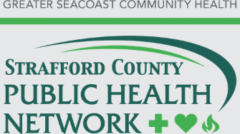In addition to our Addiction Summit, SCPHN provides & hosts a number of different educational opportunities with staff & other partners who are trained to deliver them. We are also able to coordinate custom trainings and discussions to meet the needs of our communities as they relate to our CHIP priorities.
Currently, our program is offering the following trainings & workshops:
Fill out the form below to connect with our staff about a training listed above or for our help in meeting your other education needs:
See our most recent Addiction Summit information here.
2022 ACES & Trauma: Working Towards Resiliency Workshop Series
Strafford County Public Health Network & the Strafford County Addiction Task Force presents a three-part workshop series centered around putting our knowledge of ACES and trauma-informed care to work to build resiliency in the individuals and communities that we serve.
Please find registration links & information from each of the workshops below:
Workshop #1: Understanding ACES: Building Self-Healing Communities presented by Jodi Langelotti, Mark Lefebvre & Steve Pappajohn with the ACE Interface Project
Workshop Materials:
Workshop #2: Developmental Relationships: Bring Intention to Practice presented by Carrie Foster with the Search Institute
-
-
-
- Developmental Relationships Model 1-Pager
- Click here to visit the Search Institute to find materials & learn more about their Developmental Assets & Relationships frameworks
-
-
Workshop #3: Building Community Resilience to Address Addiction presented by Liz Blackwell-Moore with Birch-Lane Strategies
-
-
-
- Building Community Resilience Presentation Slides
- Worksheet for Building Community Resilience for Addiction
- Link to Jam Board - Your Responses to the Group Activities - check-out the brainstorming thoughts from your colleagues in the community & use the notes from this Jam Board to start conversations about change in your community.
-
-
